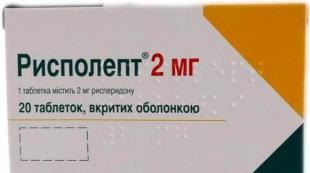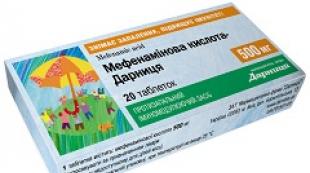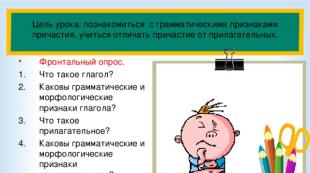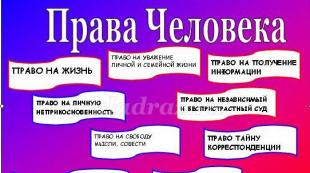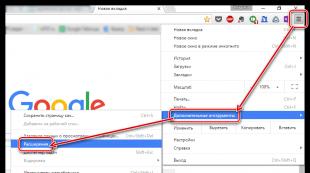Do they provide maternity capital for 1 child? Who and how many times can receive maternity capital? At what income can a family receive monthly payments?
“What a pity that they don’t give maternity capital for the first child,” young mothers sigh. And indeed, as a rule, it is young families in which the spouses have just married and had a baby who need financial support. The current reality is that a husband and wife can save up for their living space on their own, without the support of their parents, by the age of 40. In addition, the appearance of a baby significantly undermines (instead of two salaries for two, there is one left for three), and the family will no longer be able to pay mortgage payments .
Therefore, couples either delay until the last minute with the birth of a child, trying to gain a financial base, or they give birth to one and wander around rented apartments for 15-20 years. Naturally, in such a situation, maternity capital for the first child would significantly improve the situation, since many young families, immediately after the birth of the baby, would have the opportunity to purchase or expand their living space.
At the moment, the only help at the birth of a child that planning mothers can count on is:
- Compensation for early registration at the antenatal clinic. This federal payment is only 400 rubles. It can be received by working women at their place of work if they have registered before 12 weeks. The purpose of this compensation is to attract women to antenatal clinics in the early stages in order to identify possible pathologies of the fetus and, if necessary, promptly support the expectant mother with medications if her pregnancy proceeds with complications.
- The largest lump sum payment that a pregnant woman receives is, of course, the amount cannot be compared with maternity capital, but if the expectant mother works officially and earns well, then the amount can be quite decent. The maximum it can be about 168 thousand rubles. In fact, this is the vacation pay that a woman receives for 140 days of maternity leave. And it is calculated individually - the average daily official earnings are multiplied by the number of days of rest.
- up to one and a half years. It is paid from the official part of the salary and amounts to 40% of monthly earnings.
- from 1.5 to three years in the amount of 50 rubles monthly for some categories.
As you can see, it would not be at all out of place as financial support for the family. However, it is issued only for the second child, and can be spent on certain purposes: improving the family’s living conditions, for the child’s education, including for a paid private school, to replenish the mother’s pension account, and it can only be used three years after the birth of a second baby. The reasons are obvious: mothers leading an antisocial lifestyle, not understanding the legal nuances, often give birth to another baby in order to receive a large sum of money.
The exception is mortgages. If a family has a multi-year housing loan, maternity capital can be used immediately to pay off all or part of the debt.
Is maternity capital given for the first child? They don’t give, and won’t give in the near future. But now a law is being developed according to which women will retain the right to receive child care benefits for up to three years, regardless of the number of children. True, at the moment the source of payments has not been determined, and in addition, they plan to introduce this benefit in different areas at different times. For example, in the Sverdlovsk region the law should come into force on 01/01/2013, and in the Lipetsk and Orenburg regions from 01/01/2014.
In many regions, as support for large families, a large lump sum is paid at the birth of the third child (depending on the specific region, 50-100 thousand), which can be spent on current needs.
Is there maternity capital for the first child in Russia? What kind of support is generally provided from the state to families with children? Understanding all this is not as difficult as it seems. And all parents should know this information. Otherwise, you may be left without additional funds allocated to support families with small children. So what can new parents hope for? What benefits and payments are due for the birth of a baby? Where and how to register them?
Maternity capital is...
The first step is to find out what maternity capital is. As practice shows, it is this payment that interests many parents. The thing is that maternity capital is the money allocated as a lump sum payment for the birth of children in families. They are intended for the treatment/education of minors, the formation of the mother’s pension, as well as for mat. capital offers about 453 thousand rubles. Or more precisely - 453,026 Russian rubles. Not so little! Is maternity capital provided for the first child? No. In Russia, you can receive such support only if you have at least 2 children. But there are other payments due for 1 child.
About maternity capital for the first child
According to the rules established in Russia, no capital is paid to the mother for the first child. But in 2013, one small amendment was proposed. She offered to pay 100,000 rubles for the birth of the first baby in the family. However, such a bill was rejected. Why? The point is that maternity capital for the first and subsequent children should be an incentive to bear children. But in the presence of large amounts of material support with only one child, such motivation does not arise. Moreover, in Russia there are other payments to improve the well-being of the family. Which ones exactly?

Systematic benefits
To begin with, it is worth considering benefits that are paid on a regular basis up to a certain point. Financial assistance for the birth of a child from the state in the form of monthly payments is the norm for everyone. There are so-called monetary compensations for maternity leave. They are prescribed to one of the parents until the baby is one and a half years old. These are monthly payments. They will either depend on the citizen’s earnings (40% of the average), or will be assigned a fixed minimum amount by the social insurance fund (about 2,900 rubles). Also in some regions there is a benefit accrued for caring for a minor after 18 months. It applies to children up to 36 months. But, as a rule, it is not issued. After all, the payout is not that big. For example, in Kaliningrad it is 50 rubles per month. Maternity capital is not provided for the first child, but monthly benefits are always assigned. Including subsequent children.
One-time payments
It is also worth paying attention to one-time payments. Just by their name it is clear that they are issued only once. And in strictly fixed sizes. There are so-called maternity leave. This is money due to an employed woman after the 30th week of pregnancy. They depend directly on the average income of a citizen. Unemployed girls are not entitled to such a payment. Neither for the first nor for subsequent children. There is also a one-time benefit. It amounts to about 15 thousand rubles and is issued at the birth of each baby. It applies to both employed and unemployed people. You can also apply for a one-time benefit, which is due to all girls who early turned to the antenatal clinic when they discovered their “interesting” situation. That is, up to 12 weeks inclusive. The amount of this benefit is about 500 rubles.

By region
As already mentioned, maternity capital is not provided for the first child. However, at the regional level, some cities provide additional support to the population. There are gubernatorial and regional benefits. They are assigned for each minor or for the birth of several babies. For example, in Kaliningrad there is a governor's payment. For each minor they receive 3,500 rubles. And in Moscow, the benefit is 5,500 rubles. It is best to check with the administration of the family’s city of residence.
Registration of benefits
How to make payments? Since maternity capital is not required for the first child, it is worth knowing about the procedure for receiving all other types of material support from the state. To the MFC or “one-stop service” you need to bring:
- mother's ID card;
- applications for certain benefits;
- account details for transferring money;
- child's birth certificate;
- SNILS of the applicant and the minor;
- certificate of registration of the baby;
- extract from the registry office.

Registration of maternity capital
How to register maternity capital? For the first child, all previously listed payments are due. But not swearing. capital. It, as already mentioned, is issued only if there are at least 2 children. Documents are submitted either to the MFC or to the Pension Fund. You must bring:
- passports of both parents;
- children's birth certificates;
- statement;
- SNILS of children and applicants;
- documents on registration of children;
- adoption certificates (if any).
Maternity (family) capital program is a form of state support for Russian families with children. This type of state social assistance has been provided to Russian citizens since January 1, 2007 upon the birth or adoption of a second, third or subsequent child with Russian citizenship, provided that the parents have not previously exercised the right to additional measures of state social support. The amount of maternity capital does not change in 2016-2019, the size of the certificate is now is 453026 rubles. Another indexing scheduled for January 1, 2020(approximately by 3.8% - up to 470241 rubles).
Who is eligible for payments?
In accordance with current legislation, the following have the right to receive maternity capital:
- woman having citizenship of the Russian Federation, starting from January 1, 2007, who gave birth (adopted) a second child or subsequent children;
- man having citizenship of the Russian Federation, who is the sole adoptive parent of the second or subsequent children, if the court decision on adoption entered into legal force starting from January 1, 2007;
- father (adoptive parent) a child, regardless of the presence of Russian citizenship, in the event of termination of the right to additional measures of state support for a woman who gave birth or adopted children - due to her death, deprivation of parental rights in relation to the child, or the commission of a deliberate crime against her children;
- minor child(children in equal shares) or a full-time student until he reaches the age of 23 - upon termination of the right to additional measures of state support for the father (adoptive parent) or a woman who is the only parent.
To confirm the family’s right to receive maternity capital funds, the Pension Fund of Russia (PFR) issues.
Maternity capital amount
Exact amount payments under the maternity capital certificate, established for each year, are given in the table below.
| Year | Certificate amount, rub. | Source | Note |
| 2007 | 250000 | clause 1 art. 6 256-FZ dated December 29, 2006 | base size |
| 2008 | 276250 | clause 1 art. 11 198-FZ dated July 24, 2007 | +10.5% - inflation for 2007 11.9% |
| 2009 | 312162 | clause 1 art. 11 204-FZ dated November 24, 2008 | +13% - inflation for 2008 13.3% |
| 2010 | 343379 | clause 1 art. 10 308-FZ dated December 2, 2009 | +10% - inflation for 2009 8.8% |
| 2011 | 365698 | clause 1 art. 10 357-FZ dated December 13, 2010 | +6.5% - inflation for 2010 8.8% |
| 2012 | 387640 | clause 1 art. 10 371-FZ dated November 30, 2011 | +6% - inflation for 2011 6.1% |
| 2013 | 408961 | clause 1 art. 10 216-FZ dated December 3, 2012 | +5.5% - inflation for 2012 6.6% |
| 2014 | 429409 | clause 1 art. 9 349-FZ dated December 2, 2013 | +5% - inflation for 2013 6.5% |
| 2015, 2016, 2017 | 453026 | clause 1 art. 8 of the law on the federal budget for 2015, 2016 and 2017 |
|
| 453026 | - | +0% - inflation for 2017 2.5% |
Indexation of maternity capital for 2017
In accordance with the data presented in the table above, you can track changes in the size of the certificate for maternal capital by year of program implementation, while:
- over the past 10 years (from 2007 to 2017), the amount of maternity capital has increased from 250 to 453 thousand rubles(growth by 81,2% );
- general inflation for the same period relative to the level of consumer prices in 2007, according to official data only, amounted to 139,6% (which corresponds to a general increase in prices for consumer goods by 2.4 times over 10 years).
Based on official data, it can be stated that, relative to the nominal value of 2007, maternity capital is already depreciated by (139.6 - 81.2) / 139.6 = 41.8%(that is almost half). Accordingly, the purchasing power of the certificate in 2007 prices now corresponds to the amount of only 145.5 thousand rubles against the base size in 250 thousand.
How to get maternity capital for your second child?
regional maternity capital. What it is? In essence, this is an addition to federal maternity capital. Each region is trying in its own way to help large families and stimulate the birth rate.Usually this is a cash benefit in the amount of 25, 50, 100 or more thousand rubles, which can be used in the same way as. However, in a number of constituent entities of the Russian Federation, money from regional maternity capital can be used to purchase a car, land, or treat a child. In other regions, municipal authorities issue land upon the birth of a second or third child.
Recently, the topic of maternity capital has become more popular than ever before. This was due to the rapidly approaching end of the program and the financial crisis, which has exacerbated the need for money among Russian families. Against the backdrop of increased interest, people began to make a variety of assumptions and conjectures regarding the future and present of the not yet completed program to support families with children. The most utopian of them is maternity capital for the first child. We'll talk about it today.
Anyone who has read at least one article on the topic knows that maternity capital is not given for the first child. For the second, third, and even for the thirty-fifth - they give, but for the first - no, no.
MK - additional financial support for families
For those who have not yet become acquainted with the concept of maternity capital (MC), let us explain a little.
MK is a measure of additional financial support for families raising several children (Article 2 of Federal Law No. 256 of December 29, 2006). MK is issued upon the birth or adoption by a family or one parent of a second or subsequent child (Article 3 of Federal Law No. 256). A prerequisite for receiving a subsidy is time above the designated event. Only those families in which another child was born between 01/01/07 and 12/31/16 have the right to MK. Those who are late or in a hurry will not receive the money.
As you can see, the law very clearly delineates what is due to whom and when. A fair question arises: where did the information about maternity capital and the first child come from?
Obviously, the rumors stem from the bill of the State Duma deputy M.V. Degtyarev dated May 29, 2012, registered under number 82972-6. The ambitious project introduced significant amendments to the law on maternity capital (Federal Law No. 256), allowing families who gave birth/adopted their first child to apply for MK on the same basis as others.
The basic amount of maternity capital for 1 child should have been 100,000 rubles. At the same time, the remaining conditions - regarding the areas of use and the procedure for receiving funds - remained in their original form. The first payments to families under the new rules were supposed to be made on 01/01/13.
The initiative did not find support
The initiative was received very coldly at the highest authorities. Draft Law No. 82972-6 was subjected to severe criticism from the Government of the Russian Federation and the State Duma Committee on Family, Women and Children. The latter, in his conclusion dated September 13, 2012, gives the following arguments against the adoption of the amendments:
- MK is not a measure of situational financial assistance to families and children, it is a long-term measure to stimulate the birth rate in the country. The bill actually completely destroys the motivation to have two or more children. Why have a second child when they give money for the first?
- MK, paid for the first child, essentially replaces all existing measures to support families and turns into another social payment. Thus, its uniqueness and social significance are lost.
- Additional budget expenditures for the first year of implementation of the bill will exceed 88 billion rubles. Moreover, the bill itself does not offer any sources to cover increased costs, which contradicts the requirements of the Budget Code.

It is quite natural that after such a devastating conclusion, the bill was rejected on November 20, 2012. As of the end of 2014, maternity capital for the first child is still not issued.
We answer the most popular questions
This could be the end of the discussion of the topic “MK and the first child”, if not for one BUT. When applying for a certificate for MK, parents often have questions related specifically to their first child. We would also like to clarify some of them for you.
Question 1: Is the family entitled to maternity capital if the first child is already an adult?
Answer: Yes, it is. Based on paragraph 7 of Article 3 of Federal Law No. 256, the age of the first child does not in any way affect the emergence and termination of the right to receive maternity capital. Let your first-born be 25 or even 30 years old, if the next child appeared in your family after 01/01/07, you have the right to MK.
Question 2: A woman gave birth to twins as a result of her first birth, is she entitled to MK?
Answer: Yes, it has. According to the provisions of Article 3 of Federal Law No. 256, to obtain MK, the number of children is important, not the number of births. The main thing is that this event falls within the time period of 01/01/07. - 12/31/16 In this case, you can register any child from twins as the second one.

Question 3: The first child was stillborn. If I give birth to a second child, will I be able to get MK?
Answer: Unfortunately no. One of the required documents for issuing a certificate for MK is a birth certificate (based on Order of the Ministry of Health and Social Development of the Russian Federation No. 1180n dated October 18, 2011). It must be submitted by you for each child. In turn, in accordance with paragraph 1 of Article 20 of the Federal Law “On Acts of Civil Status” No. 147 of November 15, 1997. A birth certificate for a stillborn child is not issued by the civil registry office.
Question 4: I gave birth to two children, but my firstborn died in the first week of life. Can I apply for an MK?
Answer: Yes, you can. The fact is that on August 2, 2010, amendments to Article 20 of Federal Law No. 147 came into force. Now the parents of a child who died in the first week of life have the right to contact the civil registry office and receive a birth certificate (or a copy thereof). If the registry office refuses to issue a certificate or a Pension Fund employee refuses to accept documents for MK, the parents have the right to go to court.
We hope all the information above was useful to you. Healthy and strong children to you!
Over the past ten years, millions of Russian families have managed to obtain a certificate confirming the right to so-called maternal (or family) capital. The conditions for receiving this subsidy are known throughout the country - the birth of a second baby since the start of the program, that is, after 2007. Can I get a certificate for my first child?
Basic moments
The fertility stimulation program in Russia, which received the unofficial name “maternity capital,” began to be implemented in the country in 2007.
It was originally supposed to be completed in 2019, but the government decided to extend the issuance of certificates until 2019.
Moreover. All proposals for early termination of subsidies (put forward at the initiative of the Ministry of Finance in 2019) due to the ineffectiveness of the measures taken were rejected by the government.
This made it possible for Russians who decided to have a second and subsequent children to significantly improve their living conditions and quality of life in general.


What it is
A maternal capital certificate (MK) is a state-issued document confirming the owner’s right to receive the amount of financial support established by the state.
The subsidy is targeted, that is, it can be used only within the areas established by the state.
The peculiarity of subsidies is that the state does not give “real” money to parents or adoptive parents.
The purpose of the measures taken by the state is to stimulate the birth rate, that is, the presence of at least two children in a family.
In addition to supporting the family, the purpose of the law is to compensate for the forced stop in the career growth of a mother who is forced to raise several minor children.
Hence, the only possible answer to the question of whether maternity capital is given for the first child is negative.
Nevertheless, the question of the possibility of paying maternity capital at the birth of the first child was raised at one time.
This happened in 2012 at one of the meetings of the State Duma. Deputies are seriously thinking about stimulating the birth rate in principle.
It was proposed to encourage the birth of the first-born by issuing a state subsidy in the amount of one hundred thousand rubles. One of the conditions of the project was the permissible age of the woman giving birth.
A woman giving birth for the first time had to be no older than thirty years. It was also assumed that the family had to spend money under such a program for the same purposes as under the main one (if there were two born or adopted children in the family).
However, the unusual initiative remained without approval.
The deputies took into account the following nuances:
After analyzing the project, the government came to the conclusion that MK should not be considered as a payment for a child.
Such an approach would be wrong, because the goal of the state is not to provide the child himself with some material benefits, but to support his parents financially.
The necessary conditions
Nevertheless, the relevance of the issue remains. It is due to the fact that the question is not always completely clear - which of the children should be considered first.
Difficulties are caused by the following situations:
- one of the children in the family is not a citizen of the Russian Federation;
- the first-born became an adult at the time of the birth of the second child;
- the first child died;
- the mother is deprived of the right to raise one of the children;
- there was a court decision on adoption.
According to the general provisions regulating the issues of obtaining maternal capital, it is necessary that the following conditions be strictly met:
However, all of the above nuances when calculating birth order require separate clarification.
Citizenship question
The first point concerns citizenship. If a Russian woman is married for the first time to a citizen of a foreign country who already has a non-Russian citizen child from her first marriage, and gives birth to a baby with her first birth, then her child will be recognized by law as the second in the family.

In this case, all conditions arise for payment of the full amount of maternity capital:
About adoption
Are adopted children covered by the Federal Law? Definitely yes. The law makes no distinction between them.
Therefore, if a child is adopted, he is considered not the first to appear in the family, but the second. Parents have all the rights to receive government subsidies.
The same rule applies to establishing guardianship over a child. A guardian can also count on receiving a certificate if he already has a natural child or a previously adopted first child in his family.
Birth of twins
The simultaneous birth of two children does not deprive the family of the right to receive state support. It is not the fact of childbirth that matters, but the number of children raised in the family.
In any case, one of the babies was born first, the other – second. Therefore, the mother has every reason to receive a maternity capital certificate.
Death of the firstborn
It is not uncommon for a family to lose their first child. Will it be possible to count on state subsidies if a second child is born? After all, in fact, he will be the only baby in the family.
In this case, the law is completely on the side of the parents. The death of the first baby cannot be a basis for non-recognition of the right to receive maternity capital after the birth of the second child.
The only difficulty may be the lack of a birth certificate for the deceased first-born.
If a certificate was issued for the deceased child, then there are no problems - the document must be attached to the general package of papers along with the birth certificate of the second baby.
However, there are cases when a child dies in the first hours or days after birth. In this case, parents naturally do not have time to provide a certificate.
However, according to the law, a child born alive is considered to be officially born.
The maternity hospital issues a certificate or birth certificate, on the basis of which you can request to receive maternity capital upon the birth of your second child. However, a judicial procedure for recognition of the fact of birth is required.
If the child has become an adult
The state has introduced a targeted program to support families with two or more children without reservations. Many women who give birth to their first child very early decide to have a second child after the child has grown up and become an adult.
In addition, there are cases when, due to health conditions, a woman cannot give birth to a second child for a long time, and the family decides to adopt someone else’s child after their own child has matured to the status of a legally competent adult.
Is it possible to count on receiving government subsidies in this case? Of course it is possible. If the second child was born in 2007 or later, then regardless of the fact that the first child has reached the age of majority, the family has every right to issue an MK certificate.
What size
Thus, in some cases, a situation formally arises when one minor child is being raised in a family, but the state recognizes the family’s right to receive a subsidy.
The amount of monetary support assigned by the state has changed significantly over the years of program implementation.
Despite inflation, there is still every reason to consider it acceptable for improving living conditions. It's all about annual indexation.
If at the start of the program the state paid families 250 thousand rubles, then by the end of the initial period this amount had almost doubled. The average annual indexation was five percent.
The only period when maternity capital was not indexed was 2019. The amount of payments in 2019 and 2019 remained equal. The amount of maternity capital for the first child in 2019 is 453 thousand rubles.
Registration procedure
Government regulations fully regulate and formalize the procedure for obtaining state subsidies.
To obtain a certificate for a second (or first) child, you must first collect supporting documents:


Along with the documents, you will need to submit a signed application on the approved form.
Having collected the documents, the applicant should make an appointment with a specialist from the territorial Pension Fund who oversees the implementation of the maternity capital program, and give him a package of collected documents. Postal delivery is also acceptable.
If the issuance is approved, the applicant must appear at the Pension Fund for the completed certificate. You need to have your passport with you.
The date of issue will be indicated in the official written response from the Pension Fund, which is sent by mail within thirty days after submission of the application.
Video: maternity capital for the first child
Special nuances
Maternity capital is issued once per family. Secondary registration of the certificate is impossible regardless of the number of children born in the family.
If the certificate was not issued for the second child, then it can be issued at the birth of the third baby. There are no prohibitions, skipping the queue, or missing a deadline.
It is not possible for the amount of maternity capital, household appliances, luxury goods, etc. The Pension Fund transfers amounts of government subsidies only after a thorough check of the intended use of funds.
The money is transferred directly to the account of the service provider - bank, Pension Fund, etc.
Unclaimed money does not “burn out.” The certificate can be used at any time, even after the subsidy program is closed.
Maternity capital can be allocated to a woman only if she is raising a child. The very fact of childbirth cannot become the basis for financial support.
In all of the above cases, the first-born will not be taken into account as legally significant when issuing a certificate for a person’s MK.
If a child (firstborn) is born dead, then he cannot be recognized from a legal point of view as a subject of law.
Accordingly, upon the birth of a second child, he will be considered as such by law. If it ends in a late miscarriage or stillbirth, the parents do not have the right to receive a subsidy.
If a child was born alive but died before the birth certificate was issued, an extract from the maternity hospital cannot be considered as a basis for obtaining a certificate.
The Pension Fund of Russia will not consider such a document. It is necessary to obtain a court decision to establish the fact of the birth of the first child.
The legislative framework
The federal law:
Order of the Ministry of Labor:
Maternity capital is a special targeted measure to support children raising two or more children. However, there are often situations when the right to receive a certificate arises for parents when raising one child.
